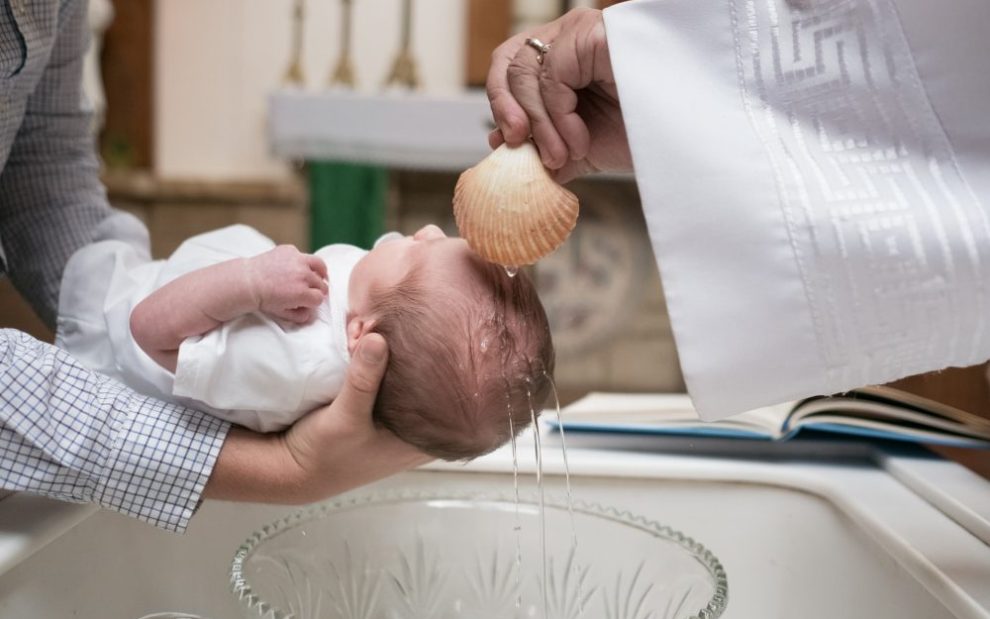If I’m honest, much of the current discourse on the Eucharist makes me uncomfortable. Within seconds of opening Facebook or Twitter, I am overwhelmed by the general meanness that seems to characterize Catholic dialogue today. Ironically, it often seems that the people of God—the lived reality of the church incarnate—are reduced to mere pawns in a clerical and ideological power struggle that is supposedly fundamentally rooted in Christ’s gift of himself.
Statements about who can and cannot receive the Eucharist are so commonplace that one might totally forget Pope Francis’ instruction in Evangelii Gaudium (The Joy of the Gospel): “The Eucharist, although it is the fullness of the sacramental life, is not a prize for the perfect but a powerful medicine and nourishment for the weak.” Much of the language around Eucharist today paints a picture of commodification rather than relationship.
Even so, there is no denying that the depths and riches of the Eucharist are sometimes overlooked today, especially when personal piety reduces the communal aspect of the Eucharist to a byproduct rather that the source of life in Christ. And I imagine this is the reason the United States Conference of Catholic Bishops has called for a multiyear National Eucharistic Revival. As Lumen Gentium (Dogmatic Constitution on the Church) from the Second Vatican Council notes, celebration of the Eucharist is “the fount and apex of the whole Christian life.”
But I am still confused about the purpose of the National Eucharistic Revival, which, according to its website, is “a direct response to the Holy Father’s call for a ‘pastoral and missionary conversion which cannot leave things as they presently are’ so that the Church in the United States might be ‘permanently in a state of mission.’ ”
While “pastoral and missionary conversion” and “mission” are certainly elements of eucharistic transformation, they remain impossible when separated from the other elements of Christian initiation. And while it is dangerous to compartmentalize any part of life in Christ, this seems especially problematic because the mission of Christians in the church and in the world is rooted in the entirety of initiation, not simply the completion of it. Baptism—and all Christian initiation—is a response to Christ. Baptism is the primordial sacrament of discipleship, an incorporation into the Body of Christ in a substantive and lasting way.
I wonder if we would understand the Eucharist better if we first committed ourselves to living the reality of our baptism. To fully enter eucharistic renewal, I believe we must understand three things about baptism.
Baptism is the basis of the Christian life
The Catechism of the Catholic Church reminds us that “Holy Baptism is the basis of the whole Christian life, the gateway to life in the Spirit, and the door which gives access to the other sacraments. Through baptism we are freed from sin and reborn as sons of God; we become members of Christ, are incorporated into the Church and made sharers in her mission.” In baptism we are indeed sharers of this mission—a mission that continues in the Eucharist, of course, but one that also transcends it, for Eucharist is impossible without baptism. In Desiderio Desideravi (On the Liturgical Formation of the People of God) Pope Francis calls baptism our first encounter with Christ’s “paschal deed.”
The paschal mystery we encounter in every celebration of the Eucharist finds its source in baptism. In his Letter to the Romans, Paul reminds us, “Do you not know that all of us who were baptized into Christ Jesus were baptized into his death? Therefore we were buried with him by baptism into death, so that, just as Christ was raised from the dead by the glory of the Father, so we also might walk in newness of life” (Romans 6:3–4). In baptism, we share in the death and resurrection of Jesus. We recall this reality when we pray the mystery of faith at Mass. Baptism is the entry point of our participation in the paschal mystery.
Baptism shares the gift of the Spirit
Eucharist is anamnetic, a forward-looking remembering. When we celebrate the Eucharist we remember Christ’s life, death, and resurrection in such a way that we look forward, making the saving action of the past a lived reality today. This is why the Eucharist is so powerfully transformative, if we allow it to be. Eucharist is not about the past. Eucharist is not about nostalgia for a bygone era or way of doing things. Rather, Eucharist allows us to live Christ’s fundamental command to “Do this in memory of me” in concrete, tangible ways. The anamnetic nature of the Eucharist is also what prevents a purely devotional understanding of the sacrament. Eucharist is deeply communal and fundamentally relational, for its essence is found in giving.
But we cannot live this “active remembering” without invoking the Holy Spirit. In the blessing of the waters at baptism, the celebrant touches the water with his right hand and prays: “May the power of the Holy Spirit, O Lord, we pray, come down through your Son into the fullness of this font, so that all who have been buried with Christ by Baptism into death may rise again to life with him” (Order of Baptism of Children). Similarly, we invoke the Holy Spirit at the beginning of every eucharistic prayer.
If we are going to take our eucharistic call seriously, we must actively invite and remain open to the movement of the Spirit in our lives. The Spirit allows us to respond to Christ’s invitation to “Do this in memory of me” in both the eucharistic sacrifice and the daily and perhaps even mundane actions and interactions of our everyday life. Transformed by the Christ we encounter and receive, the Spirit allows us to be Christ for others.
Baptism is about community
In baptism, God claims us for Godself. The wonderful example of Jesus’ baptism by John reminds us of this when we hear God say, “You are my Son, the Beloved; with you I am well pleased.” (Luke 3:22). God says the same to each of us: You are my beloved. With you I am well pleased. These words are not some feel-good niceties but sincere incorporation into God’s community. In Life of the Beloved: Spiritual Living in a Secular World (Crossroad), spiritual master Henri Nouwen writes, “When we claim and constantly reclaim the truth of being the chosen ones, we soon discover within ourselves a deep desire to reveal to others their own chosenness. Instead of making us feel that we are better, more precious or valuable than others, our awareness of being chosen opens our eyes to the chosenness of others. That is the great joy of being chosen: the discovery that others are chosen as well.”
In an increasingly polarized world, however, we are quick to create the divisions and distinctions. We—not God—construct chasms and fortify walls. If we are to work to share the love and mission of Christ with the world, we must first cast aside the divisions and distinctions that keep us from one another. Weaponizing a gift of God is antithetical to the foundations of both baptism and Eucharist. We cannot claim to be a eucharistic people if we reject our fundamental oneness as disciples in Christ.
If we are to move beyond commodification of the Eucharist, we must first dare to claim the reality of our baptism. Community is not easy, and neither is living authentic belovedness. But the Eucharist does not make sense without baptism, and we cannot commit ourselves to eucharistic revival if we continue ignore the basic reality and foundation of life in Christ. May we all open our ears to better hear the words of the Father, as heard at Jesus’ baptism: “This is my beloved.” In doing so we begin to prioritize relationship in Christ over sacramental commodity.
Image: Unsplash/Josh Applegate













Add comment